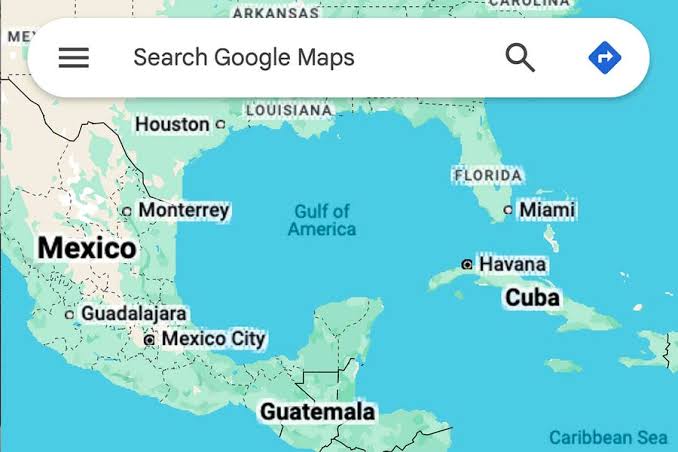
Google is facing backlash after renaming the Gulf of Mexico to the Gulf of America on Google Maps for U.S. users, following an executive order from President Donald Trump. The change, implemented on the U.S. version of the map, has drawn criticism from users and foreign governments, prompting Google to disable reviews and limit public responses. The Bay Area tech giant announced the update on Monday, aligning with the U.S. Board on Geographic Names’ official adoption of the new name. For U.S. users, Google Maps now displays “Gulf of America,” with a note stating that posting is currently disabled for the location.
Google explained that this move is part of a broader effort to curb “off-topic” contributions. A company spokesperson defended the decision in a statement to Forbes, stating that the platform frequently enforces protections in anticipation of a surge in irrelevant or unrelated comments. Google also referred to a 2023 blog post outlining its policies on handling “policy-violating content,” including fake reviews, emphasizing its commitment to maintaining accurate information and filtering out unhelpful content.
Social media users have accused Google of censorship, claiming that hundreds of one-star reviews criticizing the renaming were removed. Many also voiced their discontent by leaving negative reviews for the Google Maps app on the Apple App Store. The name change is part of a wider U.S. government initiative to update geographic labels under Executive Order 14172, which rebrands the Gulf of Mexico as the Gulf of America in recognition of its historical and economic significance to the U.S.
Mexico has strongly opposed the change, with President Claudia Sheinbaum calling it a violation of Mexico’s sovereignty over the gulf’s continental shelf. She has even threatened legal action, though it remains unclear where such a case could be filed.
Other tech companies, including Apple and Bing, have also adopted the name change. Additionally, Google recently scrapped its diversity, equity, and inclusion (DEI) recruitment goals amid mounting political pressure from Trump and his allies, who have criticized such initiatives. A Google spokesperson stated that the company remains committed to fostering an inclusive workplace while ensuring compliance with recent court rulings and executive orders affecting federal contractors.
This shift follows a broader trend, with companies like Meta and Amazon also rolling back DEI programs. Google has further adjusted its online calendar by removing default references to certain holidays and cultural observances, with users noticing that mentions of Pride Month, Black History Month, and other events no longer appear in their desktop and mobile apps.







